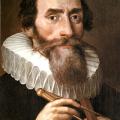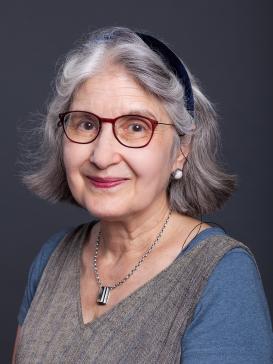396. Lorraine Daston on Renaissance Science
Comets! Magnets! Armadillos! In this wide-ranging interview Lorraine Daston tells us how Renaissance and early modern scientists dealt with the extraordinary events they called "wonders".
Themes:
• L. Daston and K. Park, Wonders and the order of nature: 1150 - 1750 (New York: 1998).
• L. Daston, Classical probability in the Enlightenment (Princeton: 1988).
• L. Daston, The faces of nature in enlightenment Europe (Berlin: 2003).
• L. Daston, Things that talk: object lessons from art and science (New York: 2004).
• L. Daston, Natural law and laws of nature in early modern Europe: jurisprudence, theology, moral, and natural philosophy (Aldershot: 2008).
• L. Daston, Histories of scientific observation (Chicago: 2011).
• L. Daston, Science in the archives: pasts, presents, futures (Chicago: 2017).






Comments
Lorraine Daston interview
Hey Peter,
Really enjoyed your interview with Lorraine Daston. As well as appreciating her broad command of the evolution of scientific thought, I also particularly enjoyed your connection of inductive methods with “finally getting universal laws right”. Though perhaps an obvious point re. the thinking of people like Bacon (not to mention later thinkers like Whewell) I tend to be “tainted” by Hume’s thoughts on induction, and, almost subconsciously, mistakenly assume that people like Bacon accepted the provisional nature of conclusions drawn via induction.
excellent episode
I thought this was one of your best. Lorraine Daston has a compelling enthusiasm for her subject. Thanks to both of you.
Daston
Fab episode. Btw the one leg umbrella people Augustine probably had found in Pliny (or a source deriving from NH) :)
In reply to Daston by han.baltussen@…
Pliny
Oh nice! I guess when in doubt, everything is from Pliny.
Wondeful interview
This is a wonderful episode on Renaissance science. Hats off
Fantastic Interview
Prof. Daston gives us a brilliant overview of the transition in the 16th and 17th centuries from medieval superstition to modern science. Her breadth of knowledge is astounding and her enthusiasm is infectious. I hope we get to hear from her again in later episodes on the philosophy of science.
Wonderful interview!
Dear Peter,
I'm moderately certain I listened to this interview when it was released, but I do not remember doing so. It was probably during one of those Sunday mornings when I did not have an almond croissant to accompany my coffee.
Now that I am re-listening to the Reformation episodes, and just listened to this interview, I was struck by what a wonderful discussion this was. Just fabulously interesting! Thank you, Peter, and thank you, Dr. Daston.
Add new comment